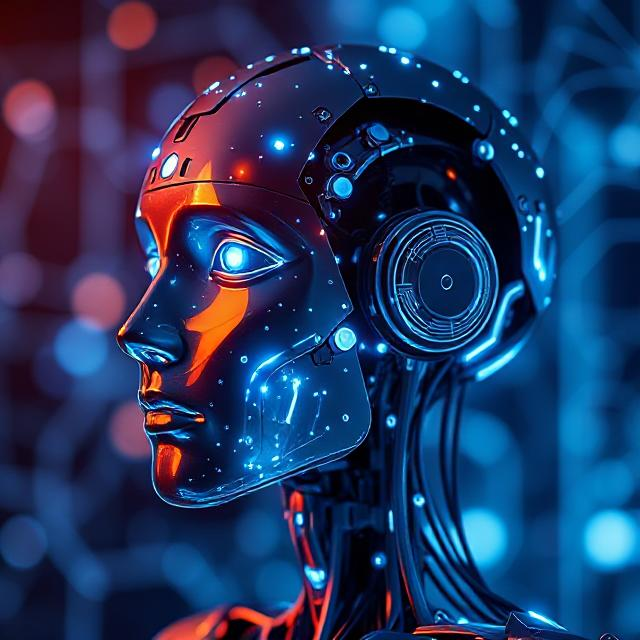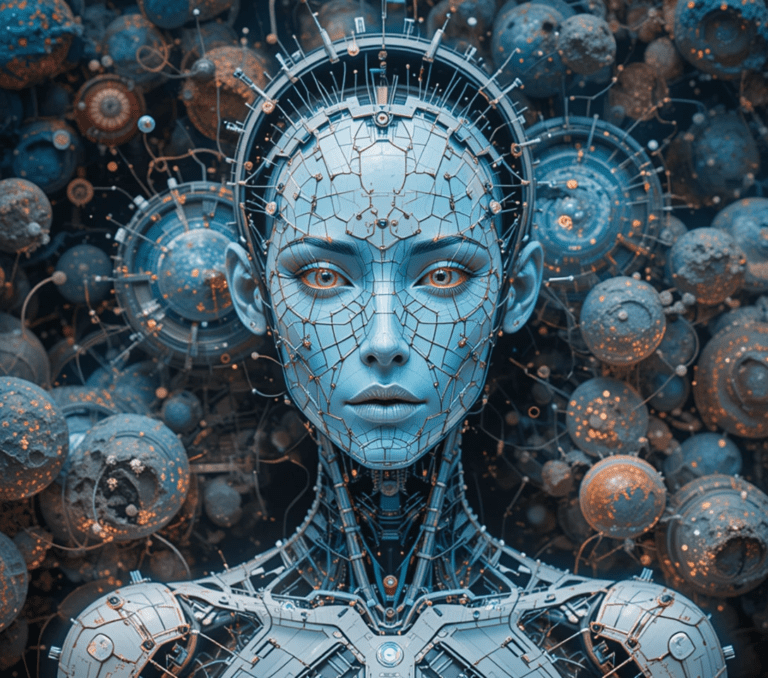
This Blog offers a guide on the Future of Artificial Intelligence and its trends. By the end, you’ll understand how AI is important in day-to-day life. Not only this, but how Artificial Intelligence is no longer a concept of the future, it has already become an important factor in the world we live and work. Artificial intelligence allows machines to perform tasks that are usually done with human intelligence. AI plays an important role in today’s world where artificial intelligence plays a crucial role in improving efficiency and effectiveness, and elevating productivity. AI-driven automation, intelligent systems and machine learning are changing how businesses operate, reduce human errors and make work easy and effective.
Overview of AI’s Future Advancements and Its Integration into the Workplace
The increasing advancements in Artificial intelligence lead to its widespread adoption across industries and the workplace. In today’s world. Today, AI is not an option but an essential element for businesses and users that are willing to stay competitive. AI not only helps in automation but also helps in boosting human capabilities rather than replacing them. Industries such as healthcare, finance, education, and manufacturing are taking help of AI for smooth working operations, reducing human error, and taking advantage of new opportunities.
This blog helps you to understand the growing importance of AI in today’s world, the future of artificial intelligence, AI technology in the future, and its impact on the workforce. And how AI helps future generations to learn how to implement AI in their work.
How AI Is Transforming Industries and Helping in Job Roles


Here are some industries and job roles that help change the nature of work:
- Healthcare – AI-powered tools, robotic surgeries, health assistants are improving patient care. AI helps in faster disease detection and drug discovery.
- Finance – AI is used for fraud detection, checking risk, and personalized banking services, making financial transactions safer and more efficient.
- Educational learning – AI-driven learning platforms provide personalized education and provide virtual tutors to enhance student learning experiences.
- E-commerce- AI helps businesses to enhance customer experience, fulfill customers’ queries through chatbots, and help them through the best possible way.
- Manufacturing- Some Companies use AI to check quality, improving efficiency and work effectively.
Understanding AI and Its Importance in Today’s World
Artificial Intelligence (AI) is one of the most trendy technologies of the modern era. AI is reframing industries, job roles, and productivity increase across various sectors. From automating routine tasks to making complex decisions, AI now plays an important role for businesses, governments, and individuals.
AI plays an important role in efficiency, innovation, and decision-making.
Artificial intelligence is not only a technology anymore -it is a basic element to gain growth in human life. Here’s why:
- Boosts Efficiency & Productivity:
- Creates Innovation
- Decision-Making improves
- Enhance Accuracy & Reduce Errors
- Supports Scalability
The Growing Importance of AI in the Modern Workplace
Artificial Intelligence (AI) helps businesses to operate and reshape the workplace more effectively and efficiently. However, rather than replacing human workers, it helps human beings to do their work faster, more accurately, and in less time. AI boosts their capabilities, allowing professionals to focus on higher-value tasks.
How AI is Augmenting Human Capabilities Rather Than Replacing Them


The most common question that arises in people’s minds that AI will replace human Jobs? But the answer is No, as AI helps humans to increase their productivity and reduces their extra time in many things with the advanced technology of AI. Help people to focus on creativity, problem-solving, and strategic planning.
- AI-Assisted Decision-Making: AI helps in providing data insights, but humans make the final decisions
- Increases Creativity & Innovation: There are many AI tools that help you to create anything that you want to create by giving them a prompt. Eg: Chatgpt, Deepseek,
By working with AI, employees can become more efficient in their work, make better decisions, and focus on tasks that require creativity, and critical thinking.
Pros and Cons of Artificial Intelligence (AI)

AI is a good opportunity in today’s world as it enhances efficiency, creates innovation, and aims at accuracy, but there are also some challenges that must be carefully managed.
Pros of AI
Here are some pros of Artificial Intelligence
- Increased Efficiency & Automation
- AI helps in reducing human efforts in data, making work error-free, and helps humans to customize their work in a creative and innovative way.
- AI automates time-consuming tasks, boosts productivity, and reduces human effort.
- Fasten Decision-Making
- AI can evaluate huge data faster than human beings and forecast future insights in a better way as compared to humans.
- AI-powered analytics improve forecasting, help to identify frauds, and improve decision making.
- Improved Accuracy & Precision
- AI outperforms humans in accuracy for tasks like medical diagnoses, facial recognition, and financial predictions.
- Example: AI-based radiology tools detect diseases in X-rays and MRIs with high accuracy.
- AI can be used anytime, anywhere
- We can use AI at any point of time continuously without getting tired like human beings
- Chatbots and AI assistants like Siri, Alexa provide customer service 24/7 to improve user interactions.
- AI is cost-effective
- AI is cost-effective and increases efficiency as it minimizes labour cost, automates tasks easily
- Companies save money on wages, training, and time-consuming tasks.
Cons of AI
- Job Displacement
- AI automation replaces jobs, particularly in manufacturing, customer service, and data entry.
- Employees need to upskill to maintain their position in the market. There are many companies where chatbots are replacing humans
- High Implementation Costs
- AI requires high development and maintenance costs in technology and expertise.
- Small businesses are not able to afford AI technology because of its high implementation cost.
3. Lack of Human Creativity & Emotional Intelligence
- AI lacks empathy, emotional intelligence, and creative thinking.
- AI generated content is emotionless, cannot match human originality.
- Security & Privacy Risks
- AI-powered systems can be hacked or manipulated.
- AI can create issues in privacy, especially in technology. It can be misled and misused.
- Human dependence on AI
- Human dependence leads to a loss of human skills and critical thinking, and reduces human efforts.
- AI decision-making can be risky in industries like healthcare and finance.
Preparing for an AI-Driven Future
As artificial intelligence continues to change, AI is a way that helps in increasing efficiency without job displacements. The role of education plays an important role in today’s world, because of this, we can get up to date about AI-driven technology. Schools and universities should include AI-related topics in their syllabus, and their teachers should get up to date about the technology. Businesses also integrate AI in their business instead of replacing human workers, Companies should aim to reskill their employees and start workshops for their employees to get updated. Meanwhile, governments play a critical role in creating educational camps for teaching AI.
Conclusion
Artificial intelligence (AI) is a very important tool in today’s world. It involves creating machines and helps in performing tasks effectively and efficiently. It can also perform tasks that require a human workforce. AI provide assistance in all fields like healthcare, education, transportation, and its impact has been widespread all over. With responsible development and regulation, AI has the potential to increase human capabilities, create innovation, and generate an intelligent future for society. Apart from this, there are some challenges of AI such as job displacement, Human dependence on AI, Lack of creativity, and data privacy. But if you use AI wisely, AI will boost efficiency and effectiveness, and also create more opportunities in the future.
What do you think about its Future? Share your thoughts with Insights Journals.








2 thoughts on “The Future of Artificial Intelligence & How It’s Shaping the Future by 2030”